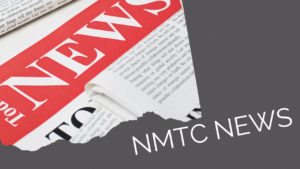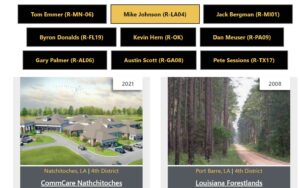Guest post by Kermit Billups, Greenline Ventures
The New Markets Tax Credit (NMTC) is one of the most efficient community economic development tools for low-income communities that I have encountered in my 35 years of investment banking. I currently have the privilege of serving as the President of the NMTC Coalition, a national membership organization founded in 1998 to advocate on behalf of the NMTC program.
The NMTC has leveraged an unprecedented level of investment to both rural and urban low-income communities, generating over $90 billion in total capital investment through public-private partnerships and creating more than one million jobs.
Having been born and raised in Baltimore, I’ve had the opportunity to see the difference the NMTC can make in communities and in the lives of community members. NMTC projects in my city have helped tackle tough challenges like the repurposing and cleanup of abandoned industrial buildings.
The NMTC helped attract nearly $2 billion dollars of private sector financing toward the redevelopment of 88 acres of former industrial land into new and rehabilitated affordable and mixed-income housing, the first new school built in Baltimore in 30 years, a life sciences and technology park, modern manufacturing space, retail space, and more than 8,000 new jobs.
Howard Park is another great example of the New Markets Tax Credits’ ability to create an economic and community transformation. It helped bring one of the first full-service grocery stores to the community in over a decade and created 250 jobs, many of which were filled by neighborhood residents.
New Orleans, post Hurricane Katrina, is another place where I’ve seen the credit’s transformative power. My family is originally from the Crescent City and I spent a good deal of time there growing up. The devastation following the hurricane was personal, and I was pleased to see my fellow NMTC practitioners working to revitalize the neighborhoods and businesses in the months and years following the disaster. The credit was impactful in New Orleans – from rebuilding the Holy Cross School, a historic school in the 9th ward, building hundreds of houses for residents, and investing in local businesses, to the construction and expansion of St. Thomas Community Health Center after the closure of five major hospitals, which serves over 21,000 patients annually.
The NMTC has an outstanding track record of revitalizing some of the poorest, most disinvested communities in our country—and it has the potential to achieve even greater success. NMTC practitioners, like myself and my colleagues at Greenline Ventures, are always looking for new and innovative ways to serve and invest in distressed communities. One use that has the potential to make huge impacts is the financing of small businesses through NMTC supported loan funds.
In January 2019, Greenline Ventures launched its second Small Business Capital Fund to deliver much-needed financing to underserved businesses nationwide. The fund provides flexible loans between $250,000 and $2,500,000 to small businesses creating positive economic and social outcomes in their communities. Our objectives for this endeavor include quality job creation, job training program support, increased minority and women-ownership, sustainable environmental impacts and other forms of assistance to low-income workers. Think Broccoli, a minority-owned urban social enterprise located in Baltimore, which organizes social impact campaigns and events to help mobilize and educate impacted communities, is a perfect example of that work.
We aren’t alone is this work to increase NMTC financing opportunities for small businesses. In fact, the 2019 NMTC Progress Report, an annual publication documenting the impact of the NMTC nationwide, found that at least 80 projects financed in 2018 were financed through a small loan pool, which is nearly one-third of the total projects for the year.
It is clear that the NMTC has the potential to continue on its successful path of growing businesses, sustaining local economies, creating jobs and expanding community services. Congressional action is needed to ensure the future of this essential tool for community revitalization. With just a few months remaining before the current NMTC authorization expires, communities, practitioners, and legislators must work together to secure this important resource and continue supporting our underserved communities.







